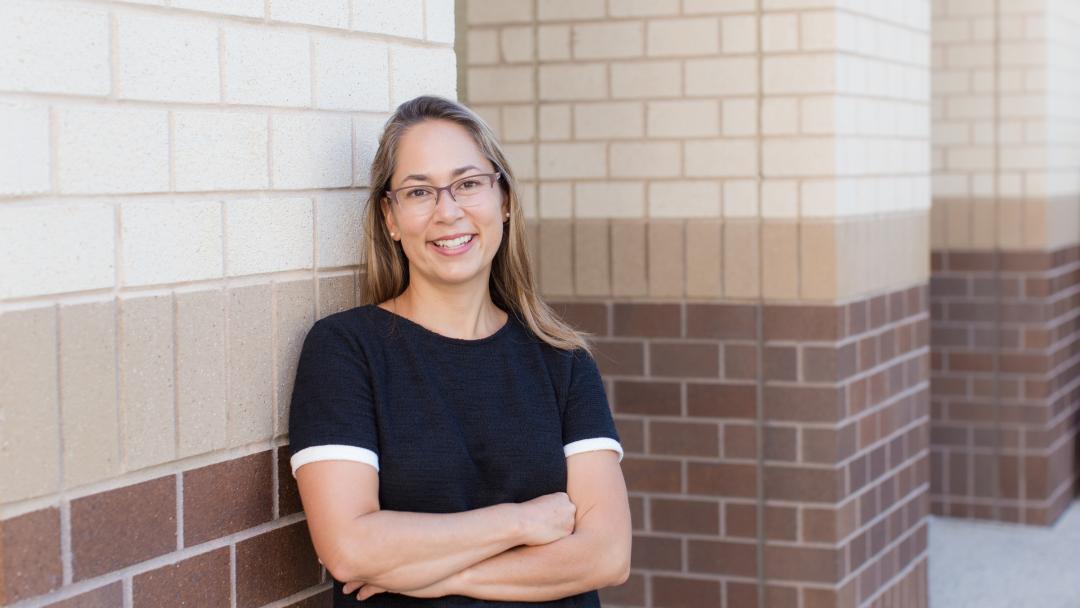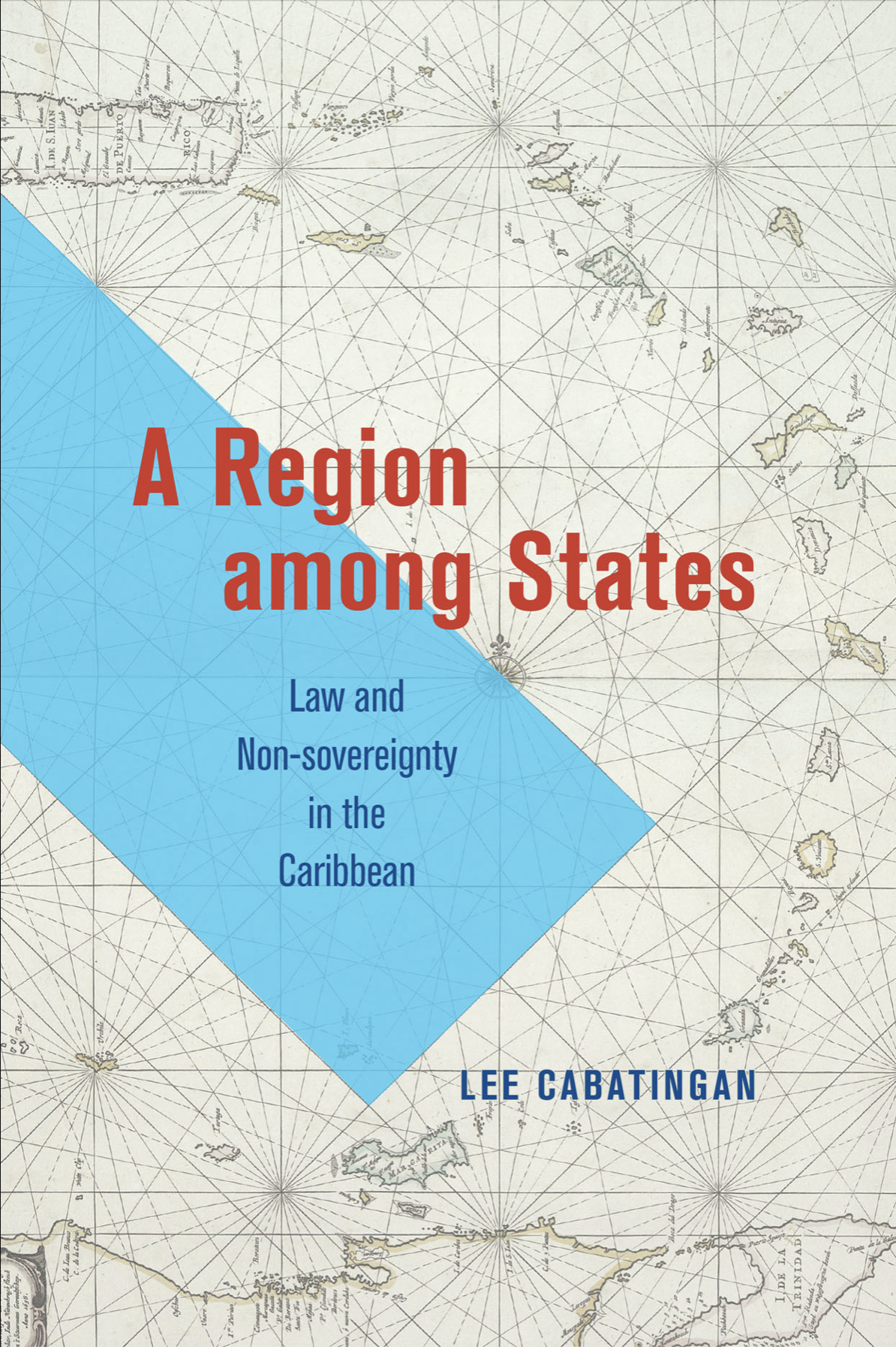
Extensive research informs Cabatingan’s new book on Caribbean Court of Justice
Lee Cabatingan arrived in Trinidad and Tobago in August 2012 to begin researching the regional Caribbean Court of Justice, which was established to adjudicate issues involving regional economic integration and serve as the highest court of appeal for its member states that, up until that point, could only turn to the Judicial Committee of the Privy Council in London.
 That research now informs A Region among States: Law and Non-sovereignty in the Caribbean, the new book from University of Chicago Press by Cabatingan, a UC Irvine assistant professor of criminology, law and society and anthropology.
That research now informs A Region among States: Law and Non-sovereignty in the Caribbean, the new book from University of Chicago Press by Cabatingan, a UC Irvine assistant professor of criminology, law and society and anthropology.
“The book is important because I don’t know of any other ethnographies that look at how an international or regional court works,” she says. “It’s a first-of-its-kind in that sense. I think it’s important because there are so many of these regional courts out there now.”
Multi-nation economic integration entities such as the European Union (EU), the Association of Southeast Asian Nations (ASEAN), the South American trade bloc Mercosur and, yes, the Caribbean Community (CARICOM) have their own courts.
“What are they doing?” Cabatingan asks rhetorically of the courts. “CARICOM is very interested in creating some sense of regionalism, much like you might have a sense of nationhood. And so, what does a court look like and how does it work in this business of region making? That's really what the book is about.”
Coming in with a law degree from UC Hastings (now known as UC College of the Law, San Francisco), experience as a legal intern with the California Attorney General’s Office and experience as a litigation attorney with two San Francisco law firms, Cabatingan and the Caribbean Court of Justice (CCJ) president agreed that the best way she could conduct her research was if she served as an intern.
During her first visit to the CCJ based in Port of Spain, Cabatingan explains, “I was essentially proposing my project to them and then figuring out with them where I could fit into the court. Since I was trained as a U.S. attorney, I could offer them some sort of free legal services, and, in exchange, I was going to get access to what was going on in the court. Our conversations were very productive, and they were open-minded about this.”
After an initial six weeks in the Caribbean, Cabatingan returned to the University of Chicago, where she was working on her Ph.D. in anthropology. She returned to Port of Spain in December 2012 to discover an official internship role had been designated for her and a desk had been reserved for her in the court’s law library. She spent the next year primarily in Trinidad and Tobago with trips to Barbados and Jamaica, accompanying the CCJ when it traveled to those islands to conduct a landmark trial.
“I carried my legal notebook around and took notes on the hearings and did some legal research, and I did a lot of speechwriting and helped with setting up conferences,” she says of her internship. “But I also carried around my research notebook in another pocket and took research notes the whole time.”
Cabatingan left the island nation again in December 2013, but returned two different years after that to conduct more research, present her findings and receive feedback.
“The expectation in my discipline of anthropology is that, ultimately, I would write my dissertation on that research and then the expectation would be that I would ultimately write a book and peer-reviewed articles,” she says.
In the introduction to A Region among States: Law and Non-sovereignty in the Caribbean, she writes:
The region as a possible solution is my primary object of analysis, and it is through an ethnographic exploration of how a relatively new court with lofty ambitions pursues the project of region making that I also seek to say something about sovereignty. This is not, however, a completed story that has reached a successful ending, in that the ‘problem’ of sovereignty has not yet been solved and a region has not materialized. Instead, this book explores the possibility of constituting a region on a geopolitical and ideological terrain dominated by the nation-state. It explores, from the perspective of an institution explicitly devoted to regional integration, what the pursuit of this possibility actually looks like, what it entails when there is no functional blueprint available. Even more specifically, it explores how this pursuit and that possibility take shape within a world very much structured by colonial legacies.
“The book’s rich analysis of the array of activities of and feelings about the CCJ is a great contribution to what we know about the complex work of new apex courts and scholarly debates about region-making projects in the Caribbean,” writes reviewer Tracy Robinson, a notable law professor at the University of West Indies and co-editor of Transitions in Caribbean Law.
“This is an empathetic and rigorous anthropology of the CCJ,” adds Naor Ben-Yehoyada, author of The Mediterranean Incarnate. “Cabatingan’s ethnography brings together questions and approaches from postcolonial regionalism, legal anthropology, and Caribbean studies. Through eye-opening conversations with judges and throughout the court, interwoven with a careful study of media and archival material, she shows how the delicate balance between the work of adjudication and political region making raises dilemmas that otherwise remain right below the surface.”
While Cabatingan politely declines to say whether she believes the CCJ is or will be a success, explaining that she would prefer to be an independent observer and leave any such conclusions to A Region among States’ readers, the scholar did offer that “I grew to really respect the vision of the court. There were so many naysayers that were sure this court was going to fail and that this was just another folly of region-making.”
Which gets to the gist of what she hopes readers come away with after completing the book.
“I want people to understand that what this court is doing is really an extremely daunting creative project,” she says. “They are taking these known tools of statecraft and nation making that many people in anthropology or political science study and very creatively repurposing them to try to craft a region. And, arguably, they’re doing it.”
When it comes to the daunting task of book making, Cabatingan credits the UCI Chancellor’s ADVANCE Postdoctoral Fellowship she received in 2015 with helping her complete the project (let alone get hired two years later as an assistant professor of criminology, law and society). She also gives shoutouts to “the massive support” she received from a writing group composed of fellow UCI women postdocs, her mentor Mona Lynch, a professor of CLS, and her fellow anthropologist in CLS, Susan Bibler Coutin.
Lynch “was really helpful in just guiding me on where to publish different articles,” while Coutin went over the steps to get a book published, including the crafting of proposals for publishers, says Cabatingan, who also relied on the guidance of UCI’s Eve Darian-Smith, professor of global studies, Justin Richland, professor and chair of anthropology, and Bill Mauer, dean of the School of Social Sciences.
— Matt Coker